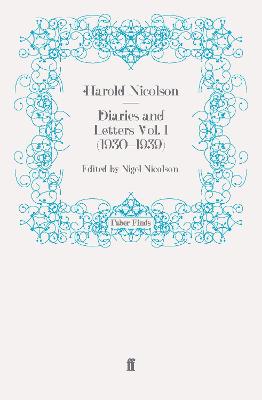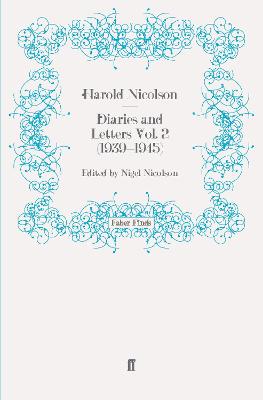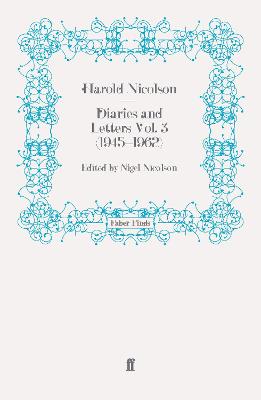Harold Nicolson diaries and letters
3 total works
Harold Nicolson's Diaries and Letters, spanning the years 1930 to 1962, were first published in three volumes, and it is in this format Faber Finds is reissuing them. The one-volume abridgement available in paperback from Phoenix is practical, and in itself a superb piece of compression, but such a great work, one of the major diaries of the twentieth-century, deserves also to be available in its full original incarnation.
'Not only a brilliant picture of English society in the 1930's, but a touching self-portrait of a highly intelligent and civilized man driven by conscience and curiosity to enter politics' Sir Kenneth Clark
'Enthralling reading. . . . A sharp, concise and highly intelligent account of his times is provided, at once amusing and serviceable to the historian.' Malcolm Muggeridge, Observer
'One is hardly able to put it down for meals. . . It is very artfully edited for, besides the diary proper, there are many letters to Sir Harold's wife, Vita Sackville-West, and not a few from her to him. But this remains solidly and brillinatly Sir Harold's own book.' Cyril Connolly, Sunday Times
Harold Nicolson's Diaries and Letters, spanning the years 1930 to 1962, were first published in three volumes, and it is in this format Faber Finds is reissuing them. The one-volume abridgement available in paperback from Phoenix is practical, and in itself a superb piece of compression, but such a great work, one of the major diaries of the twentieth-century, deserves also to be available in its full original incarnation.
This is the war volume. From the first page to the last Britain was at war. From 1940 to 1941 Harold Nicolson was Parliamentary Secretary to the Ministry of Information; subsequently he was a Governor of the B. B.C. Throughout he was in the perfect position to observe and describe, knowing the chief actors, Churchill, de Gaulle, Eden and many others. He experienced with acute anxiety and mounting excitement the fluctuating fortunes of the war, and came to share a mood of unreasoning faith and simple patriotism with the rest of the country. In July of 1940 he wrote, 'I have always loved England. But now I am in love with England. What a people! What a chance! . . . The chance that by out stubbornness we shall give victory to the world.'
'One stops to marvel at the achievement. Honesty, decency, modesty magnanimity are stamped on every page, as evident as the wit. These are not the normal virtues of successful diarists or would-be politicians, but Harold Nicolson possesses them all.' Michael Foot, Evening Standard
'He remains completely unaware that he is tapping out a masterpiece. Brilliant though he is as historian and man of letters, the diary will keep him best remembered. As lively as Creevey or the de Goncourts, Sir Harold is a peer of those classics. Mr Nigel Nicolson has again done a superb job of editing and annotating.' A. P. Ryan, The Times
Harold Nicolson's Diaries and Letters, spanning the years 1930 to 1962, were first published in three volumes, and it is in this format Faber Finds is reissuing them. The one-volume abridgement available in paperback from Phoenix is practical, and in itself a superb piece of compression, but such a great work, one of the major diaries of the twentieth-century, deserves also to be available in its full original incarnation.
In this third volume we see Harold Nicolson, though no longer a Member of Parliament, still deeply involved in public affairs. He joins the Labour Party: he attends the Nuremberg trials: he broadcasts from Paris on the three-months peace-conference of 1946, and he gives an illuminating account of the Suez crisis. But perhaps the most valuable political aspect of this volume, as with the others, is the portraits and private conversation of leading statesmen: Churchill in advancing age, Macmillan on his way up and as Prime Minister, Eden, Smuts, Bevin and many others.
'One of the best diaries in the language' Michael Foot
'Nowhere are his style and cultivation more truly reflected than in his diaries and letters, edited with skill and candour by his son Nigel . . . Full of witty and intimate pictures of the famous and immediate comments on the great events of the time, they were very much more than a record of classy hobnobbings, for few excelled Nicolson in the art of self-revelation and no lesser diarist could have made so moving and fascinating a thing of the relationship between himself and his wife, Vita Sackville-West, and his sons.' The Times


